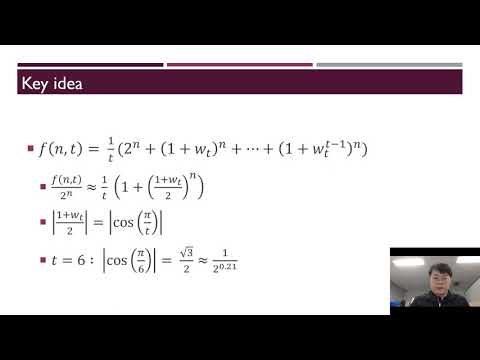CryptoDB
Adventures in Crypto Dark Matter: Attacks and Fixes for Weak Pseudorandom Functions
| Authors: | |
|---|---|
| Download: | |
| Abstract: | A weak pseudorandom function (weak PRF) is one of the most important cryptographic primitives for its efficiency although it has lower security than a standard PRF. Recently, Boneh et al. (TCC'18) introduced two types of new weak PRF candidates, which are called a basic Mod-2/Mod-3 and alternative Mod-2/Mod-3 weak PRF. Both use the mixture of linear computations defined on different small moduli to satisfy conceptual simplicity, low complexity (depth-2 ${\sf ACC^0}$) and MPC friendliness. In fact, the new candidates are conjectured to be exponentially secure against any adversary that allows exponentially many samples, and a basic Mod-2/Mod-3 weak PRF is the only candidate that satisfies all features above. However, none of the direct attacks which focus on basic and alternative Mod-2/Mod-3 weak PRFs use their own structures. In this paper, we investigate weak PRFs from two perspectives; attacks, fixes. We first propose direct attacks for an alternative Mod-2/Mod-3 weak PRF and a basic Mod-2/Mod-3 weak PRF when a circulant matrix is used as a secret key. For an alternative Mod-2/Mod-3 weak PRF, we prove that the adversary's advantage is at least $2^{-0.105n}$, where $n$ is the size of the input space of the weak PRF. Similarly, we show that the advantage of our heuristic attack to the weak PRF with a circulant matrix key is larger than $2^{-0.21n}$, which is contrary to the previous expectation that `structured secret key' does not affect the security of a weak PRF. Thus, for an optimistic parameter choice $n = 2\lambda$ for the security parameter $\lambda$, parameters should be increased to preserve $\lambda$-bit security when an adversary obtains exponentially many samples. Next, we suggest a simple method for repairing two weak PRFs affected by our attack while preserving the parameters. |
Video from PKC 2021
BibTeX
@article{pkc-2021-30959,
title={Adventures in Crypto Dark Matter: Attacks and Fixes for Weak Pseudorandom Functions},
booktitle={Public-Key Cryptography - PKC 2021},
publisher={Springer},
doi={10.1007/978-3-030-75248-4_26},
author={Jung Hee Cheon and Wonhee Cho and Jeong Han Kim and Jiseung Kim},
year=2021
}

